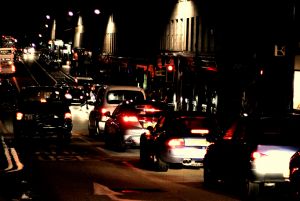Jacksonville Driving Under the Influence (DUI) occurs when a person drives under the influence of alcohol or a controlled substance to the extent that he or she is impaired. Most people understand that you cannot drive a vehicle when you have had too much to drink. The same is true for medications. For example, even if a person is prescribed a drug, he or she cannot drive a vehicle if that drug impairs the ability to drive. What if a person accidentally takes prescription medication? This is known as involuntary intoxication.
In Devers-Lopez v. State of Florida, 710 So. 2d 720 (Fla. 4th DCA 1998), Ms. Devers-Lopez was charged with driving under the influence of the sleeping medication, Halcion, in violation of section 316.193(1) of the Florida Statutes. She testified that she thought she was taking Valium, which she is prescribed. Instead, she accidentally took one of her husband’s Halcion. The Florida court failed to instruct the jury in reference to the defense of involuntary intoxication to driving under the influence. She was found guilty and appealed.
 Jacksonville Criminal Defense Lawyer Blog
Jacksonville Criminal Defense Lawyer Blog




